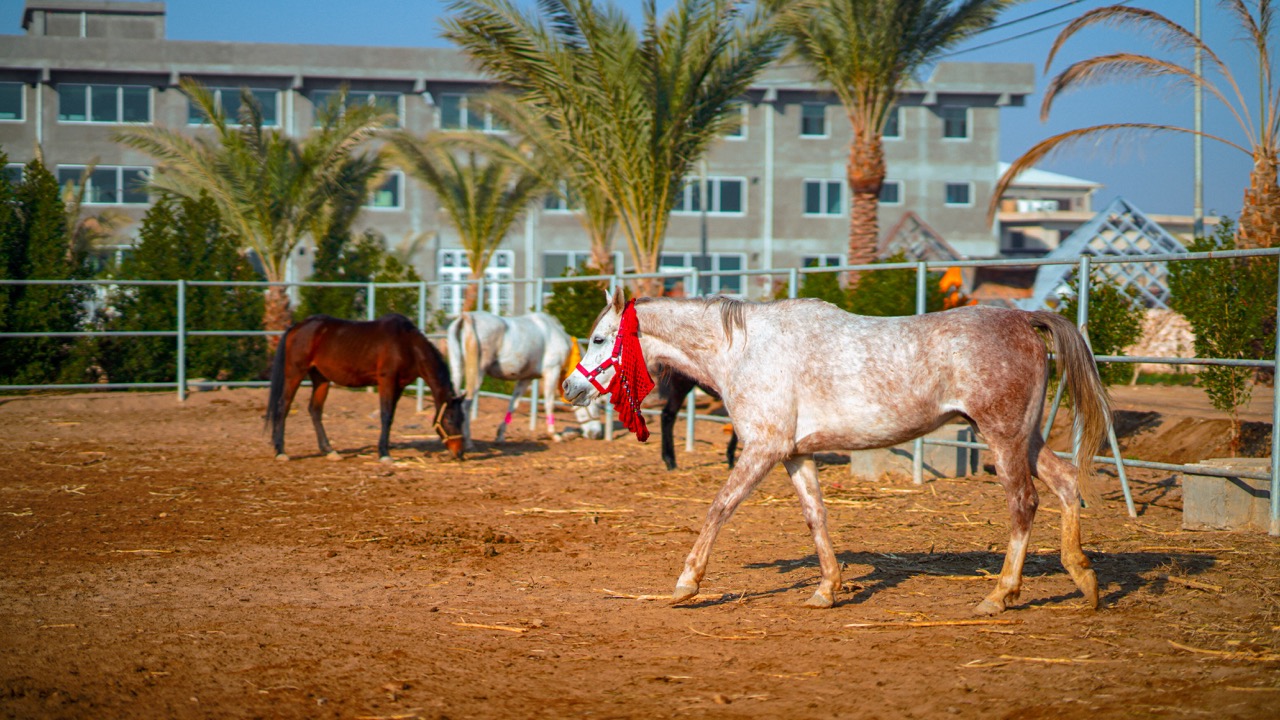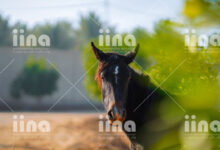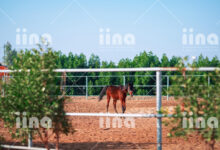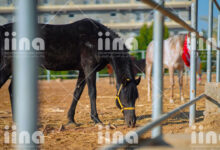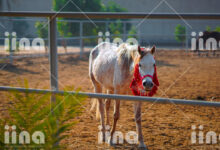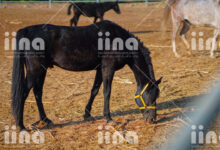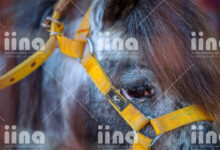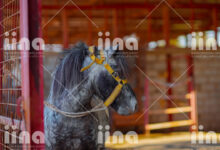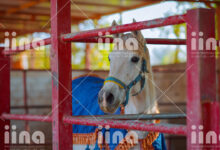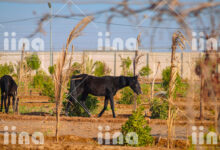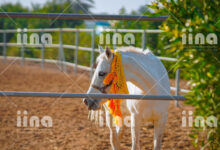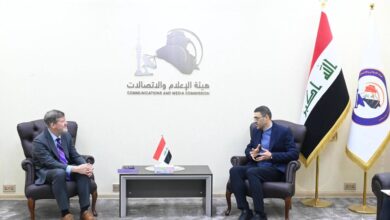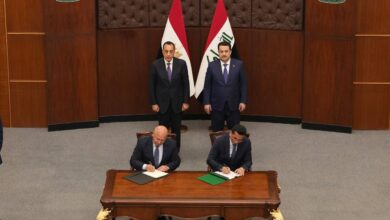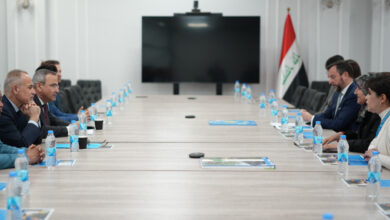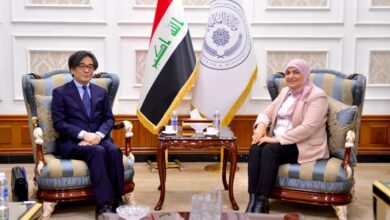The breeding of traditional purebred Arabian horses in Iraq has recently seen a resurgence, in order to revive ancestral heritage, as horses represent a sign of equestrianism and courage, as well as a strong relationship with their owners, so that some people call them after their sons.
Purebred Arabian horses are distinguished by their distinctive head, high tail, and graceful body. They are one of the oldest and most renowned horse breeds in the world, in addition to their ability to run long distances and their remarkable beauty, which has earned them international fame.
Horses are also a national wealth and part of the ancient history of the Arab peoples, which extends for thousands of years, and they constituted a symbol of heroism and strength in the wars they fought.
Dr. Ahmed Al-Tamimi, the veterinarian in charge of the Department of Animal Care at the College of Veterinary Medicine, Babylon, said, “The horses we have are purebred Arabian horses registered with the World Arabian Horse Organization based in Britain, and all horses are within international and Iraqi standards.”
He added, “The Arabs cared about this type of horse for its speed and endurance for long distance running and bad weather, whether heat or war, as well as for its beauty.”
The project manager for horse breeding, Zaid Ali, who is an animal lover, says that one of the goals of the project was to “restore the Iraqi heritage associated with horses, apart from being a successful investment project that can benefit everyone, in addition to aesthetics and restoring the spirit of this hobby associated with purebred Arabian horses.” Encouraging the establishment of many horse studs in Iraq, and now there are horse stud projects that will be opened in other cities, after the success of the experiment we carried out in the city of Hilla.
He mentioned that some of his horses won prizes in horse racing at the Equestrian Club in Baghdad, pointing out that every horse or horse has an electronic card with his name and details of his life written on it. The prices of horses vary according to their age, birth, and type, and the prices range from $20,000 to $40,000, and there is less, but we adopt horses with an international and Arab reputation in particular, and we work on breeding them after mating at specific times and according to a schedule prepared in this regard, and they are sold inside and outside Iraq, specifically to the Gulf countries.
Regarding the challenges facing the project, Ali says that although the work is being done at a level and with international standards, it suffers from a scarcity of medicines and difficulty in obtaining entry visas for veterinarians from outside Iraq, as well as those who deal with horses in scientific ways, and who are called Al-Siyas (horse trainers). ). He adds, however, that the project includes doctors from Egypt, Syria and Iraq, as well as Iraqi employees, and others from Egypt, Pakistan and Iran.
- Published: 9th February, 2022
- Country: Iraq

